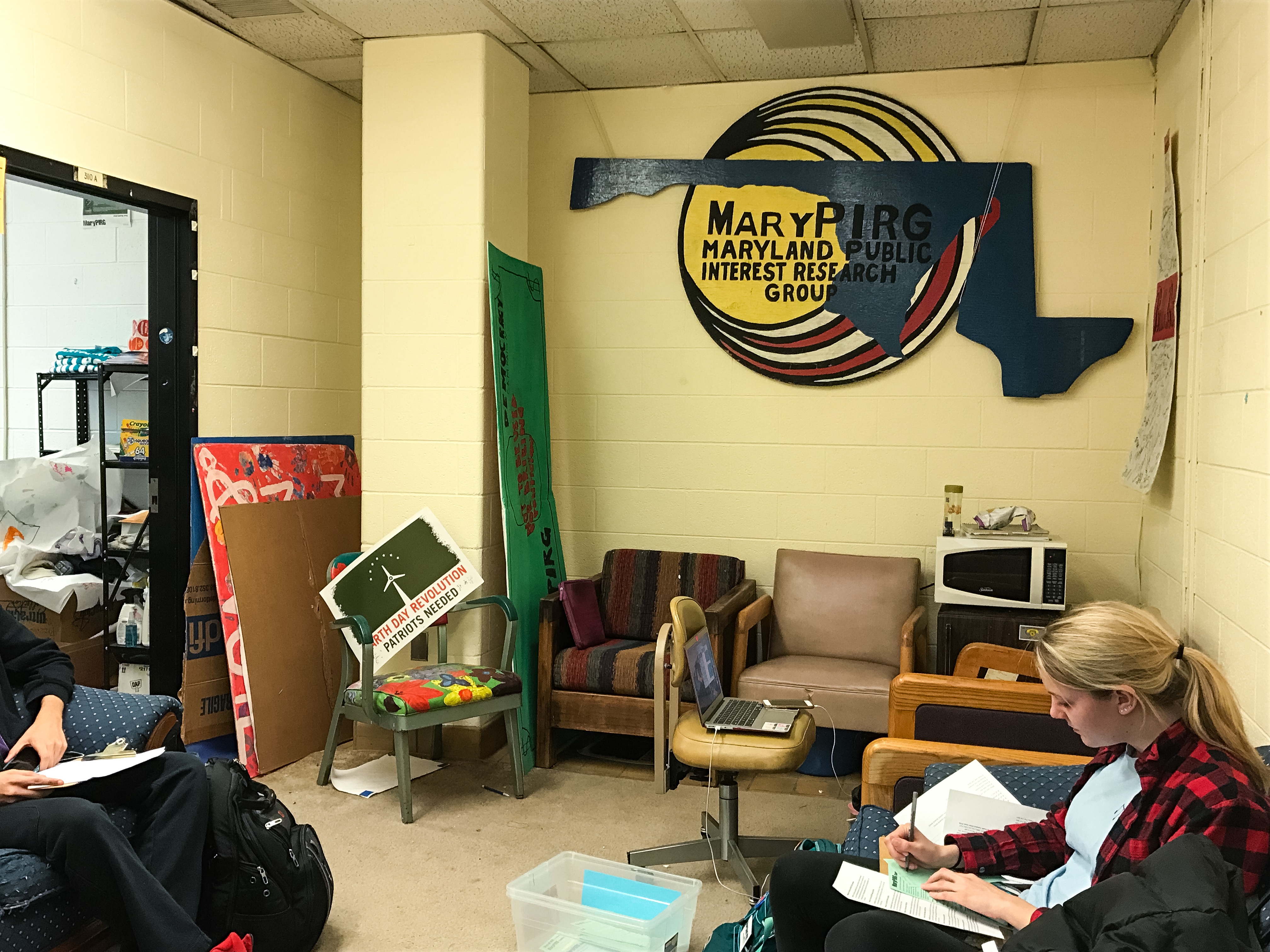A statewide ban on Styrofoam products at restaurants and food suppliers is making its way through the Maryland General Assembly.
Cups, plates and takeout boxes made from expanded polystyrene foam, commonly called Styrofoam, would be banned from use in this state starting July 1, according to the bill. The bill would allow a six-month grace period for businesses to adjust before enforcement of the law would begin, said state Sen. Cheryl Kagan (D-Montgomery), who sponsored the bill. Enforcement would begin Jan. 1.
[Read more: A petition calls for an end to plastic straws at the University of Maryland]
Claire Jordan, the advocacy and outreach manager for the environmental group Trash Free Maryland, has gathered a list of environmental advocacy groups in the state including Sierra Club, the League of Conservation Voters and Blue Water Baltimore, who support the bill.
MaryPIRG, an activist group at the University of Maryland, has collected over 1,500 individual petitions in support of the statewide ban, said sophomore government and politics major Luisa Beltran, who leads the “Save the Bay” campaign for MaryPIRG and has organized phone banking and email blasts to legislators who might be undecided on the bill.
[Read more: UMD MaryPIRG launches campaign to ban Styrofoam statewide]
“It’s a momentum thing that people are starting to realize that Styrofoam has no practical use,” Beltran said. “In the long run, it has a lot of negative impacts, not only [on] the environment but a lot health risks that come along with it.”
The bill has gained steam after similar bans were enacted in Montgomery and Prince George’s counties and Washington, D.C., in 2016. The Baltimore City Council unanimously approved a ban on expanded polystyrene food containers last month, an initiative Baltimore mayor Catherine Pugh vowed to sign into law.
The state bill has received over 120 individual petition signatures and 12 letters of support from businesses saying that they are in favor of the bill, Jordan said, including Mom’s Organic Market and Elevation Burger in Hyattsville.
While some local jurisdictions have taken action to ban polystyrene, a statewide ban is preferable, she said, because it “levels the playing field” for Maryland businesses, adding that the goal is to have consistency in the law across the state.
“It makes it harder for businesses in multiple jurisdictions to comply with a variety of different bans,” Jordan said. “Litter doesn’t stop at county lines.”
Both versions of the bill have support from legislators. Nineteen senators are co-sponsors of the Senate bill, and over 30 have put their support behind the House bill.
“It’s always the right time to pass proactive preventative environmental legislation,” Jordan said. “We’ve known for years the negative environmental impacts of expanded polystyrene foam.”
Research shows that expanded polystyrene does not biodegrade. Instead, it breaks down into tiny particles and seeps into the waterways where they are ingested by animals and even humans, Jordan said.
Styrene, the main chemical in polystyrene, is reasonably anticipated to be carcinogenic, according to the National Toxicology Program. These chemicals leach into food and beverages, Kagan said.
Opponents argue that replacing polystyrene products would not reduce the environmental impact and that the infrastructure to recycle alternatives does not exist everywhere across the state.
“These materials must be collected and sent to commercial composting facilities in order to fully break down as designed,” said Restaurant Association of Maryland’s Senior Vice President Melvin Thompson. “Howard County is the only jurisdiction we are aware of that has some limited residential collection and composting of food waste and such alternatives.”
“Forcing businesses to use alternative packaging does not reduce litter; it only changes its composition,” Thompson added.
Gary Armstrong, the owner of Heavenly Chicken & Ribs, a small business with locations in both Prince George’s and Calvert counties, testified at last month’s Senate hearing that this issue is a “trash problem, not a Styrofoam problem.”
“Let’s go after where the garbage is going and how to manage that better,” Armstrong said.
The ban would increase costs for restaurants, Thompson said, which is “challenging to absorb for narrow-profit margin industries like ours, and are difficult to pass on to price-sensitive customers.”
The cost of switching away from polystyrene foam would impact his bottom line, Armstrong said. A pack of 200 polystyrene containers costs $16, and the same number of biodegradable containers costs twice as much.
“That’s an increase of $7,000 [in cost] to my business a year,” he said.
The bill’s fiscal note found the financial impact the bill will have on small businesses is negligible.
Kagan said she understands why some businesses are resistant to the ban.
“Some of this is based on fear or lack of knowledge,” she said. “We think that businesses will do the right thing — protect public health — and with little to no cost increase.”
Jordan and Kagan stressed that they do not intend the ban to negatively impact Maryland businesses. Trash Free Maryland is seeking to extend the bill’s grace period to one year, the length of time used in the bans in Prince George’s and Montgomery counties, according to Jordan.
“We’re not asking anybody to throw away their current supply,” Kagan said. “We know that, especially in restaurants, profit margins can be narrow.”
Jordan said the bill is not meant to be unfriendly to businesses and that Kagan wouldn’t have reintroduced it had Trash Free Maryland received negative feedback.
To better understand the impact similar legislation has had on businesses, Jordan polled local restaurants in Washington, D.C. The majority of businesses she spoke to were already using a mix of expanded polystyrene foam and compostable containers, she said.
“Businesses go in the direction of the market,” Jordan said. “They’ve been able to switch to other products. It tells us that the market is moving in that direction.”
“We don’t want this to be punitive,” Kagan said. “We want people to do the right thing.”



